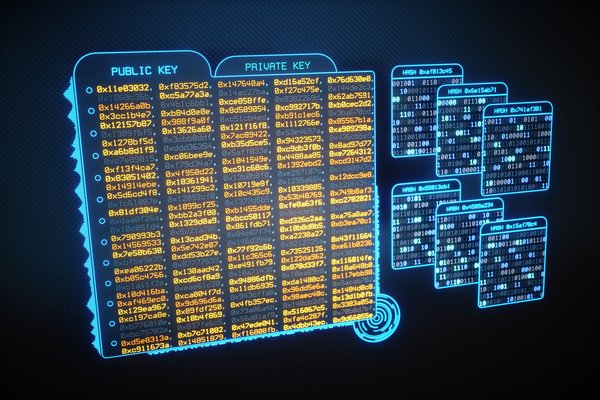One of the hallmarks of cryptocurrency is its decentralized nature. A distributed group of nodes verifies and records transactions, allowing cryptocurrencies to operate without a central party governing them. For this to work, each cryptocurrency needs a way to achieve a consensus. That's where Byzantine Fault Tolerance comes into play.
While it's not the most widely discussed aspect of crypto, Byzantine Fault Tolerance is among the most important. Here's everything you need to know about what it is and why it's so critical.

What is Byzantine Fault Tolerance?
Byzantine Fault Tolerance is a computer system's ability to continue operating even if some of its nodes fail or act maliciously.
The term comes from a hypothetical called the Byzantine Generals Problem. This logical dilemma, as you'd expect, is about a group of Byzantine generals. Each general has an army and a location surrounding a fortress, and they must decide as a group to attack or retreat.
If they all make the same decision, they're successful. But, if there's a miscommunication or treachery causing some generals to attack while the others retreat, then the battle is lost. These types of problems are known as Byzantine faults.
With any computer system that has multiple nodes, each node could be considered a general. The system's Byzantine Fault Tolerance refers to whether it can keep working even when some nodes go down or intentionally try to deceive it.
Importance of Byzantine Fault Tolerance
From a computing perspective, Byzantine Fault Tolerance is important because it means a system can keep functioning even if certain components stop working. Anything that uses a computing system, such as an airplane or a space probe, needs to be able to work when not all of its nodes are at 100%.
If you invest in cryptocurrency stocks or individual coins, there's another reason it's worth learning about this subject. Byzantine Fault Tolerance is a crucial element of the blockchains that handle cryptocurrency transactions.
How does Byzantine Fault Tolerance relate to blockchain?
Blockchain technology is how cryptocurrencies validate, process, and record transactions. For a transaction to go through, a group of nodes must agree that it's valid. Each blockchain network has a consensus algorithm, which are the specific rules its nodes follow to reach an agreement on transactions.
The consensus algorithm is how a blockchain achieves Byzantine Fault Tolerance. Since cryptocurrencies are decentralized, each one faces a large-scale version of the Byzantine Generals Problem. The blockchain needs to be able to function even if it has nodes that aren't working correctly or are providing false information.
Bitcoin (CRYPTO:BTC) first aimed to solve this problem with proof of work. In this consensus algorithm, miners must solve complex equations using specialized computer equipment. The first miner to solve an equation correctly earns the right to add a block of transactions and earn rewards. If you don't produce the correct data, you've spent time and energy for nothing.
The other popular type of consensus algorithm is proof of stake. It involves validators staking their cryptocurrency, meaning they lock it up in a wallet for the right to verify transactions. If the protocol chooses you to add a block to the blockchain, then you can earn crypto rewards. But, if you try to approve invalid transactions, you'll lose some or all of your staked crypto.
Both of those consensus algorithms have Byzantine Fault Tolerance to an extent because they can work properly even if some nodes are providing incorrect data.
What is practical Byzantine Fault Tolerance?
Practical Byzantine Fault Tolerance is a system that has a primary node and secondary nodes. These nodes work together to reach a consensus, making this system one of the solutions to the Byzantine Generals Problem.
Here's a basic breakdown of how practical Byzantine Fault Tolerance works:
- The client makes a request to the primary node.
- The primary node sends that request on to the secondary nodes.
- The nodes process the request, provide the service, and respond to the client.
- The client waits until it has received the same response from m+1 nodes, with m being the maximum number of faulty/malicious nodes the system allows.
In a practical Byzantine Fault Tolerance system, the maximum number of faulty/malicious nodes can't be equal to or greater than one-third of the system's total nodes.
Pros and cons to practical Byzantine Fault Tolerance
There are a few valuable benefits of practical Byzantine Fault Tolerance:
- It doesn't require significant computing power or energy usage because there aren't any miners solving complex equations for every block of transactions. This makes it much more environmentally friendly than proof of work.
- Transactions don't require multiple confirmations. If the nodes are in agreement about a block of transactions, then it's confirmed immediately.
- Since all nodes can get in on the action, they can all share in the rewards. There isn't such variance between which nodes earn rewards like there can be in proof of work and proof of stake.
No solution is perfect, and practical Byzantine Fault Tolerance also has some notable pitfalls:
- It's vulnerable to Sybil attacks (named after a book about a woman with a multiple personality disorder), where one party is able to get control of a large portion of nodes. The more nodes there are, the harder it is to launch a Sybil attack.
- It requires communication between nodes at every step of the process. This takes time, which can be a problem from a scalability standpoint.
A blockchain may not have every node working correctly at times, and there will always be bad actors who try to manipulate transactions. Each cryptocurrency has a consensus algorithm designed to help it achieve at least some degree of Byzantine Fault Tolerance. As a general rule, these algorithms allow the cryptocurrency to run normally as long as at least two-thirds of its nodes are functioning properly.

























































































































